Note: This post may contain affiliate links which means if you click on a link and purchase an item, we will receive an affiliate commission at no extra cost to you.
This is the fifth interview in a series featuring digital nomads talking about their lives and lessons (click here if you want to be interviewed). The goal is to help demystify the process of making money online, wandering the world, and living an unconventional life!
Biron Clark is a content entrepreneur who runs CareerSidekick.com, a job search advice blog that receives millions of annual visitors. We met in Playa Del Carmen, Mexico in early 2019 and he’s one of the most accomplished content entrepreneurs that I’ve met during my travels!
I love Biron’s story and he provides lots of great insights in this interview into how to nomad, how to start a content business, and his story of becoming an entrepreneur.
Table of Contents
Introduce yourself! 🙂 Who are you? What do you do for work? And what is your nomadic story?
Hi, I’m Biron. I grew up outside of Boston and worked in the city for a few years but never enjoyed working for someone else.
I wanted freedom and I wanted to see the world.
So at age 27, I quit my job and bought a one-way ticket to Chiang Mai, Thailand.
I had no income at the time, but $19,000 in savings to keep me afloat.
I started working online as a self-taught digital marketer, mainly freelancing on Upwork.
While this wasn’t my dream, it was great because I was essentially being paid to learn.
I also worked on a side project: a job search advice blog called CareerSidekick, that I had started while working as a job recruiter in Boston.
I hoped that someday, the blog would generate enough income for me to live off, but when I flew out to Chiang Mai, it was only earning $100 a month.
Fortunately, I stuck with it while freelancing and eventually made the dream happen!
I was making $2,000 to $4,500 per month as a freelancer, but told myself that if I could get the blog to earn $1,000 in a month, I’d quit everything else and go all-in.
Once I decided to focus on this goal, it only took one or two months for it to happen. I reached $1,000 in earnings, and then after dropping all of my clients, I earned $1,500 the next month.
It only went up from there. I think trying a few things while you’re learning and finding your way is great, but nothing beats focusing on one project with 100% of your effort and attention in the long-run.
I’m still a nomad now, more than six years later, and I still run the same blog/business (with no client work 🙂 )
I’ve lived in Thailand, Vietnam, Malaysia, Colombia, Mexico, and Panama.
What inspired you to start nomading? And how has nomading changed your perspective on life?
I was heavily inspired by the book 4 Hour Workweek, a gift from my brother.
It opened my eyes to what’s possible in terms of earning an income online with no ties to a location. It also made me realize that most of the perceived limits in my life were self-imposed, or could be broken down through choice and action.
Being a nomad for years made me realize that most people are friendly and well-meaning, no matter where you go, and you’re going to have a lot in common with people even if they’re from a different country.
As an American, I think I grew up with an “us vs. them” mindset. You read the news and if there’s an accident abroad, the media tells you how many Americans were injured, for example. We’re taught to think of it in terms of Americans, and then everyone else. I don’t see that anymore. We’re all just people.
What advice would you give to someone who’s thinking about nomading?
First, don’t overthink it. It’s great to plan ahead, and you should. But there will always be some doubts and unknowns, so at some point, you just have to give it a shot.
If you wait for every unknown or tiny doubt to be eliminated, you’ll never go.
Most of my worries ended up being silly. I was afraid I was too old (I was 27 when I started). I met people of all ages and realized how silly this was. Plus, I was only getting older if I waited, right?
I was worried about getting sick in Thailand. I read that there are different germs when you travel far away. I’ve been ill once in Thailand, in years of living there. It was a total non-issue.
As for meeting people, look for local Facebook groups in the town or city you choose. Search for the city name plus “nomad” and “expat.” That should yield a few groups per city where you can learn about talks, events, meetups, dinners, language exchanges, etc.
And from a business standpoint: Focus on getting a solid income stream up and running. That’s most important. I saw nomads in Chiang Mai talking about how they save $0.20 on coffee by walking to a further place. While it’s great to budget, nobody ever got rich by saving a few cents on coffee. You need income, and once you get it, it’s going to solve most or all of your nomad problems.
Please tell us the detailed story of how you started your business.
My business is a job search advice website called Career Sidekick. It started as a side-hustle when I was working as a recruiter in Boston.
I decided to start a website to share the job search tips and tactics that I was learning.
Years later, it became my full-time business.
We sell a couple of e-books and courses, and have other income streams as well (like affiliate marketing and display advertising).
Our first e-book was a short job interview preparation guide that I put together at a coworking space in Chiang Mai.
I remember the first sale I made, for $7, while I was in Bangkok for the weekend.
I’ve never been more excited for such a small amount of money. The first sale is always the hardest.
Looking back, the blog took years to build momentum on and grow, but I knew that’s the type of platform I was building. It’s something that can grow exponentially and earn true “passive” income. That type of business is often slower to start than consulting, freelancing, or another service business. I was willing to wait.
Since launching, what has been most effective to acquire/retain customers and scale your business?
I mainly use organic traffic channels: social media, SEO, content marketing, email marketing, etc.
I’ve also created some YouTube videos over the years, but never focused heavily on this.
If I were starting again today, I’d probably prioritize YouTube first and the blog second. Youtube is incredibly powerful and times have changed since I started. (Blogging in most niches is more competitive.)
What digital tools do you use for your work/business?
Favorite tools:
Ahrefs for SEO.
Active Campaign for email marketing (full disclosure: I’m with Drip now, but I regret leaving Active Campaign).
SendOwl is fantastic if you sell e-books or other digital downloads.
Stripe and Paypal for payment processing. (I tried removing Paypal from checkout and received far fewer orders. Many consumers continue to trust Paypal above all else, so I recommend keeping that option).
WordPress for building a scalable website.
Canva for all of my design needs.
Evernote for notes/lists, although I’ve heard there are better choices if you do a lot of teamwork (Notion is one).
I also use Google Docs and Google Sheets a lot.
What scale is your business at today?
We’re a multiple six-figure per year business and receive millions of visitors each year.
Once you separate your time from income (for example, selling a product instead of trading your time for money as a freelancer) it’s almost limitless what you can earn… even as a nomad.
If you need more help with this concept, check out the book “The Millionaire Fastlane.” It breaks this concept down in detail and was a true eye-opener for me.
For someone interested in becoming a content entrepreneur, what’s the best advice that you would give? And what books, podcasts, thought leaders or other learning resources do you recommend?
There’s an incredible amount of free info if you take the time to dig for it… on YouTube, blogs, podcasts, Facebook groups, Reddit, etc.
Books can also be incredibly valuable. I read books like The Ultimate Sales Letter and The Irresistible Offer when I was learning copywriting and digital marketing.
Russell Brunson’s DotcomSecrets was also fantastic. I still use an email marketing sequence from that book to this day!
In general, study the best and follow the best. The “best” people are different in each niche, but if you’re interested in something like email marketing, you can join a great marketer’s email list and read their emails.
If you want to learn Facebook ads, you can browse a company’s Facebook ads and see what they’re running.
If you only had a few minutes to live, what are the most important life lessons that you would share with the world?
Time is the most valuable resource, not money. You can never get more time.
And people/relationships matter more than places. I’d rather be in a “boring” city with great people than alone in a “great” city.
What’s your favorite book?
The Four Hour Workweek and The Millionaire Fastlane. I mentioned both earlier.
What small change has made a big difference in your life?
Not checking email or social media until I’ve been awake for an hour has been a big improvement for me. I have more creative thoughts and solve more problems in the morning now.
What are the 2-3 favorite places where you’ve lived/traveled to and why?
I love Southeast Asia for how friendly, safe, cheap, and lush/beautiful it is.
My two favorites are Chiang Mai, Thailand, and Da Nang, Vietnam.
(Rooftop pool view from one of my favorite apartments in Chiang Mai)
Finally, I love the mountains of Colombia. I’ve spent the most time in Medellín but I’m starting to explore smaller cities in the region, too.
What is unique about the way you travel and what advice do you have for someone that wants to travel with a similar style?
I like to travel very slowly… usually spending three to nine months per location. This gives me a chance to focus on work, build better relationships, join a gym, etc.
Four of the biggest barriers to people nomading are debt/student loans, owning a pet, having an apartment lease, or owning a home. If you had any of these when you started traveling, how did you address or think about these issues and what advice would you give to other people with a similar situation?
I had a lease. I decided to stay until the lease ended. I just used the year to plan out my move and save cash (I was working an office job at the time). While it would have been fun to just leave immediately, it’s not a big deal now that I look back, and I was able to save more money before departing, which is great.
What’s the best purchase you’ve made under $100 in the last 12 months?
YouTube premium. Not seeing ads is a game-changer, especially since I use YouTube to learn and stay up-to-date on topics like SEO and content marketing.
How can people learn more about you and your work?
I’m on Instagram and LinkedIn.
My business: CareerSidekick.com


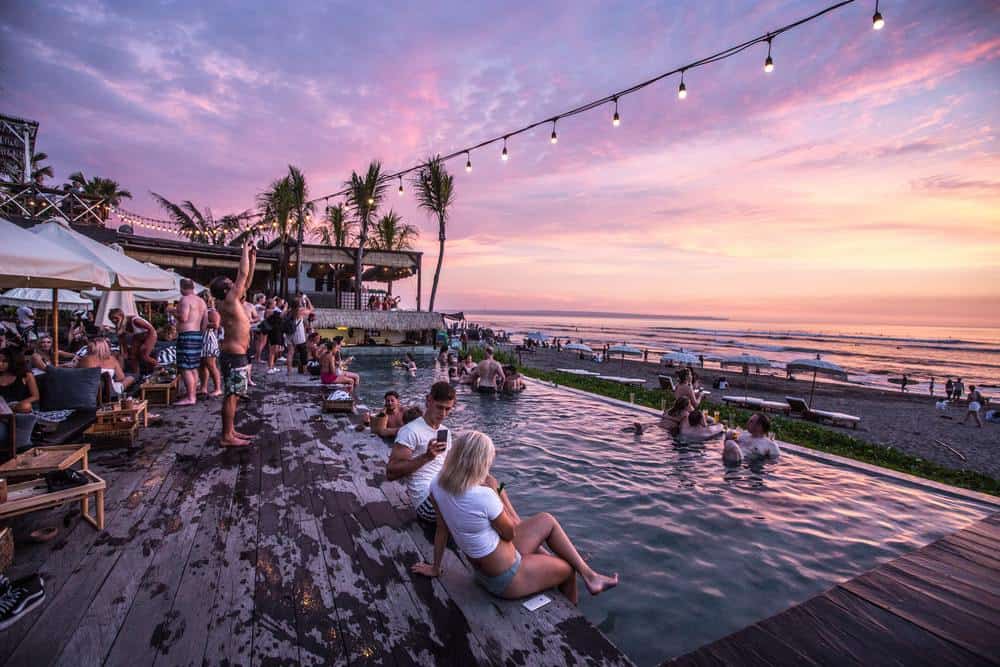
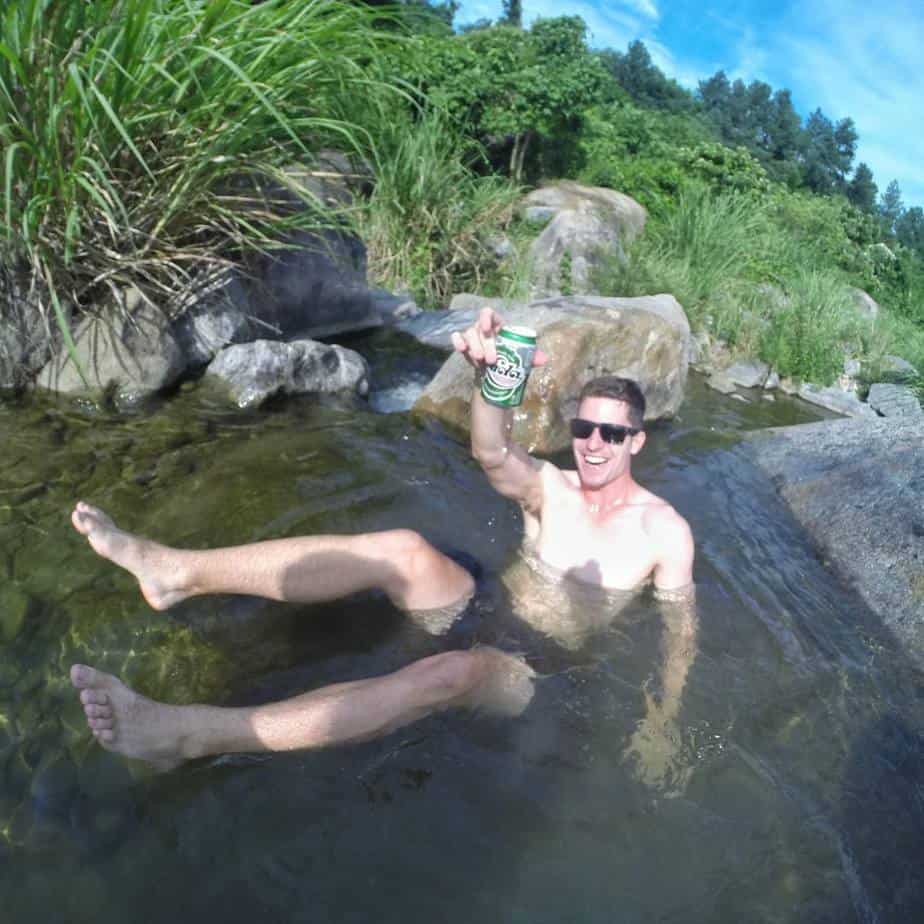
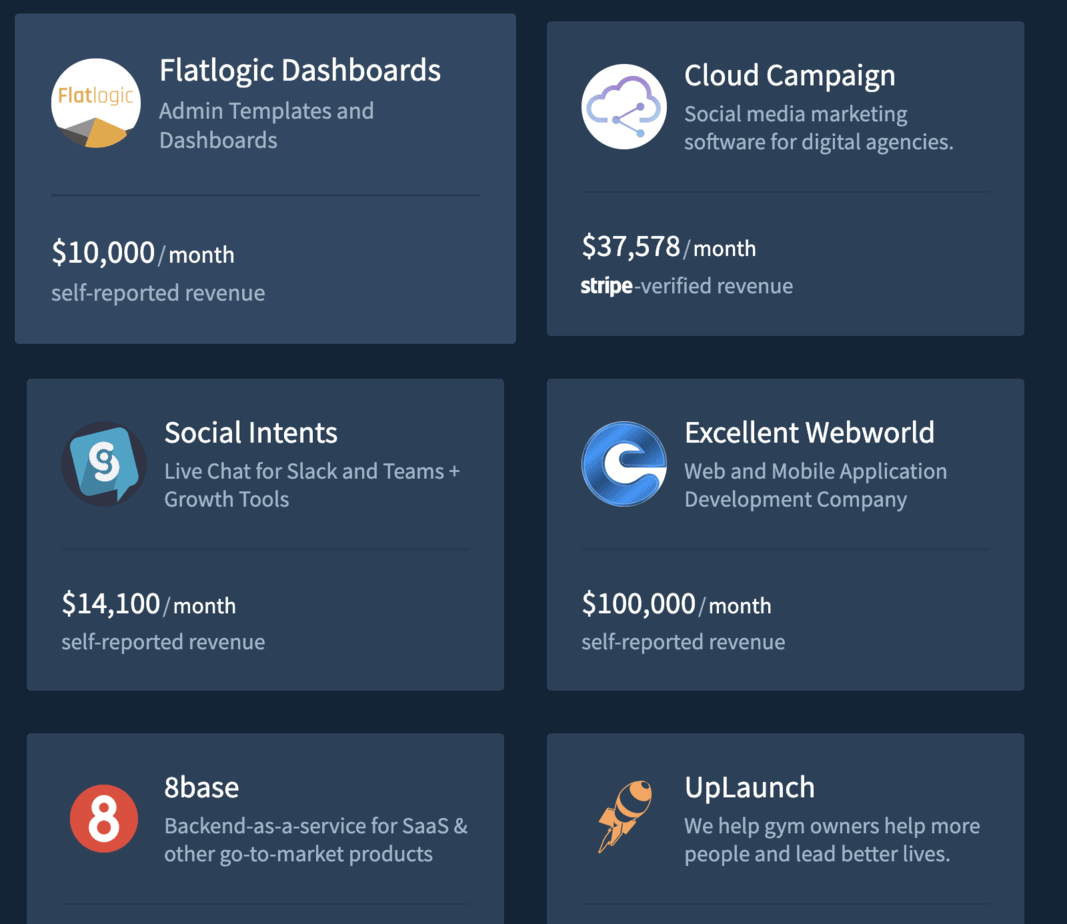
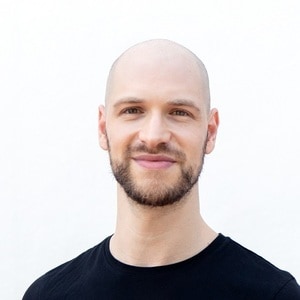
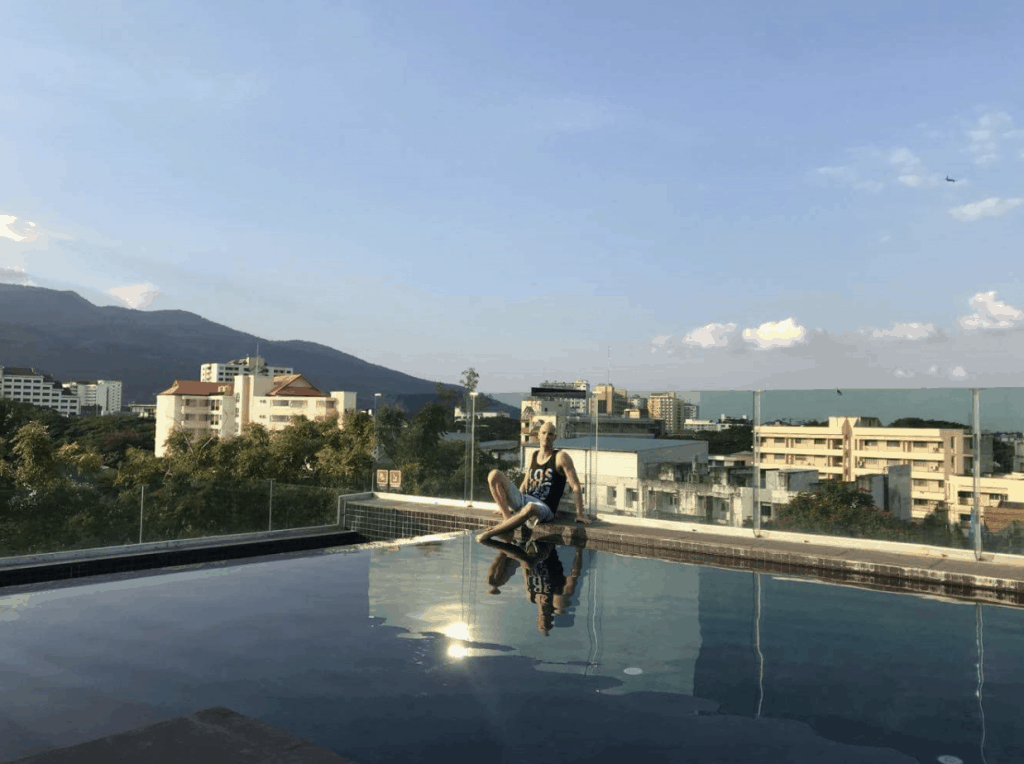
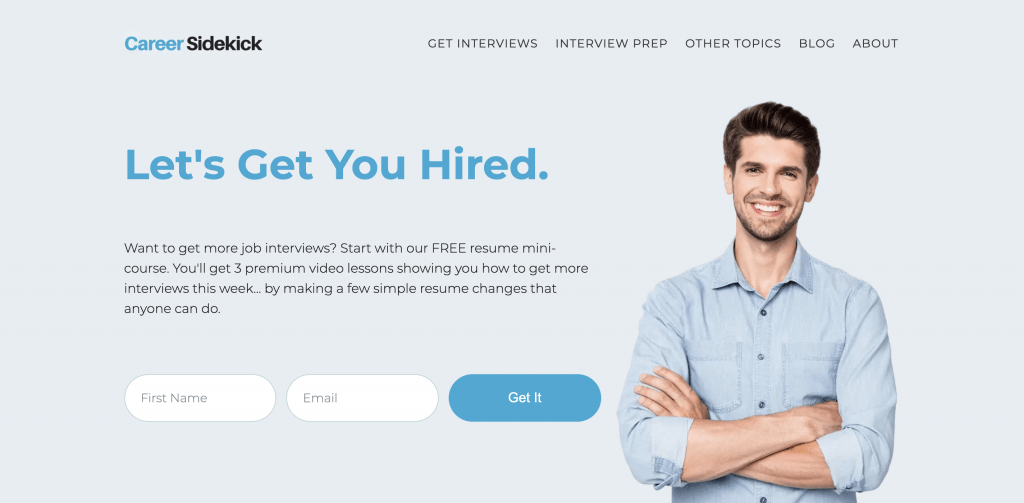
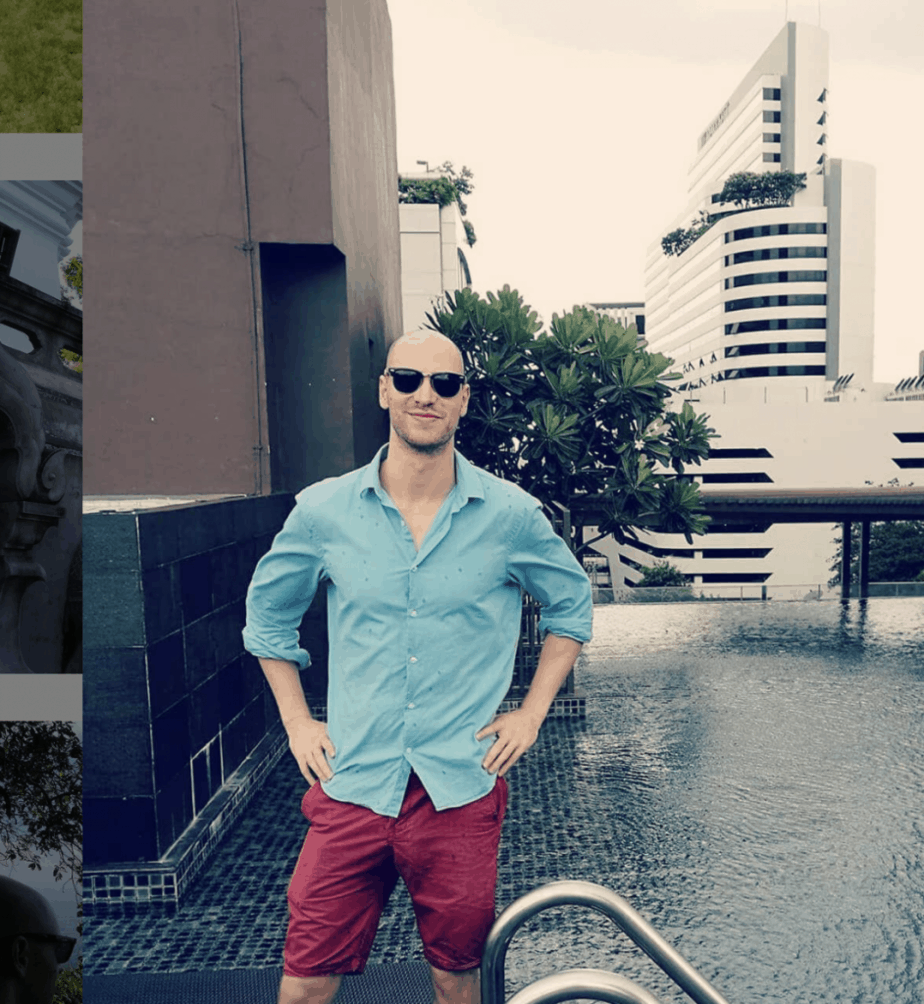
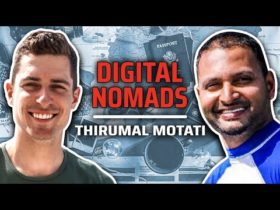
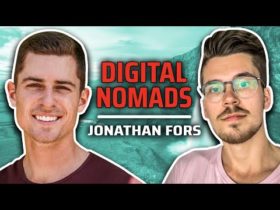
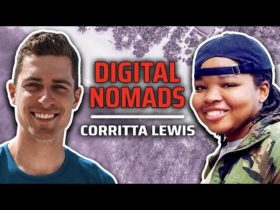
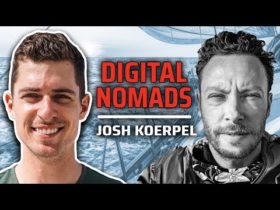
Leave a Reply
View Comments